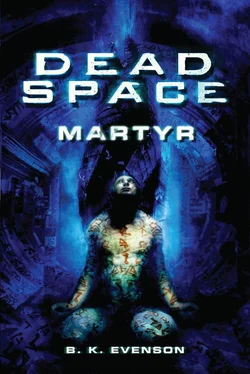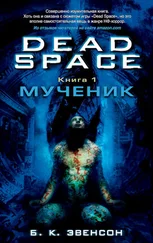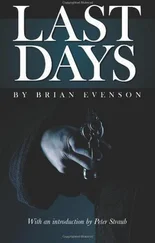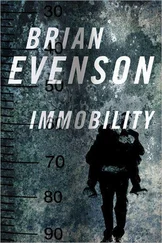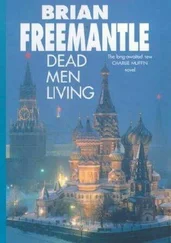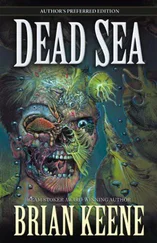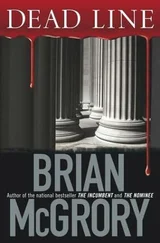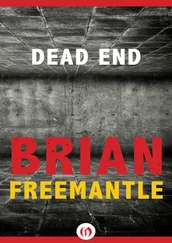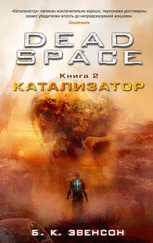“It was dangerous,” said Altman, his voice barely above a whisper.
“It’s not dangerous,” claimed Krax. “It’s divine.”
“You’re crazy,” said Altman.
“No, he’s right,” said Stevens. “I’m afraid that’s the conclusion that all three of us have reached.”
Altman turned his head slightly in Markoff’s direction. It hurt to move it. “You don’t believe this, do you? How can you believe it’s divine now that you’ve seen what it’s capable of?”
Markoff offered him a hard, glittering smile. “It created life,” he said. “I saw that for myself, saw it take dead flesh and bring it back to life.”
Maybe he doesn’t actually believe, thought Altman. Or maybe he’s pretending as a way of bending the others to his will. Just as I did with Harmon.
“But what kind of life?” asked Altman. “It was monstruous.”
“There must have been a glitch,” said Stevens. “The Marker must have gotten damaged somehow. But as a principle, it’s sound. All we have to do is fix it.”
“Or if not fix it, make a new one,” said Markoff.
“After all,” said Stevens, “every indication is that when it was originally working, millennia ago, it established life on earth. Once we have one that’s working properly, it will allow us to evolve beyond our mortal form. It will lead us into eternal life.”
“No, it’s not that. It’s not that at all. You’re wrong,” whispered Altman. “It wasn’t damaged; it was doing what it was meant to do. It meant to destroy us.”
“Then why did it stop?” Stevens asked. “And why did it stop when you began to broadcast its own code back to it, showing that you’d figured out how to replicate it?”
“How do you know about that?”
“You don’t think we left the facility without making sure that we could record everything that went on in it, do you?” said Krax. “We watched the whole thing. We have footage of everything.”
But Altman just shook his head. “You’re wrong,” he said. “It’ll destroy us.”
“The Marker wants to help us,” Stevens claimed. “Harmon has told us what you figured out: the Marker wants to be replicated. It was broken and must have known it was broken. It wants us to make it again so that it can help us. But we’ll improve the technology, Altman. We’ll make one that works and then make it even better.” He leaned in closer. Altman could feel the man’s breath on his face, could see in the man’s eyes traces of fanaticism that belied his calm exterior. “There are sure to be other Marker s, somewhere, on other worlds,” said Stevens. “They will lead us forward. In the meantime, we’ll do our best to try to understand this one and duplicate it.”
“You’ve done a lot to help with that,” Markoff said.
“But this one is sunk,” said Altman desperately.
“It was sunk before,” said Markoff, “and we got it up. You know that as well as anyone. All you did was slow the inevitable down slightly, by a few weeks, a few months.”
“You don’t have the research,” said Altman. “Everything must have been destroyed by the water and the pressure. You’ll have to start over.”
Krax shook his head. “Altman,” he said. “You’re so naïve.”
“Remember Harmon?” said Markoff. “What do you think Harmon was doing while he was in the Marker chamber? He was recording everything, making sure that none of the data would be lost. And then he carried it all away in his pocket. If you’d thought to check his pockets or simply left him to die, you might have set us back. But you didn’t. You’re far too trusting, Altman. We have everything.”
“We also have all of Guthe’s research,” said Stevens. “We can learn from it what went wrong with the Marker and learn how to repair it. We ran our first experiments, synthesizing and reproducing the creature’s DNA, while you were still unconscious. Hermetically sealed labs, a variety of fail-safes. We’re being a great deal more careful about it than Guthe was, though most likely hallucinations were to blame for his rashness.”
“And to be frank,” said Krax, “watching you struggle past them taught us a great deal about how to control them. We wouldn’t be nearly as far along without you.”
“You’re making a terrible mistake,” whispered Altman. He was very tired. He was helpless, couldn’t do anything. But maybe soon. All he had to do was regain his strength. Once he regained his strength, he’d do everything he could to stop them. “If you go ahead with this, it’ll mean the end of humanity. Maybe not right away, but soon.”
“That’s what we’re hoping for,” said Stevens. “If we go ahead with this, we’ll reach the next evolutionary stage. We won’t be human; we’ll be better than human.”
“Good-bye, Altman,” said Markoff. “You’ve been a worthy adversary. But this time you’ve lost.”
Once the three of them had left, a doctor who had accompanied them to the door returned and whispered in the surgeon’s ear. The surgeon nodded his head, and then filled and primed a hypodermic. He pushed it into Altman’s arm. The world grew gray, slowly faded away.
When he woke up, he was still strapped down to a bed. He was alone in a small room, something very like a cell. He struggled against the straps, but they were firm.
He slept, he woke, he slept again. Occasionally a nurse would come in and change the bag of fluids hanging beside him. His head throbbed. Once when the nurse came, she took out a small pocket mirror and held it so he could see himself.
His head was wrapped in bandages. He hardly recognized his own face.
“There, see,” said the nurse, and gestured to the top of his head. “That’s where you had your accident.”
“Accident?” he said.
“Yes,” she said. “Where you slipped and fell.”
“It wasn’t an accident,” he said.
She smiled. “After head trauma, sometimes things can get confused,” she said.
“No,” he said. “I know exactly what happened.”
Her smile looked painted on, fake. “I’m not supposed to talk to you,” she said. “Those are the rules.” She backed slowly out the door.
A few minutes later, the door opened and a man with a hypodermic entered.
When he woke up again, he was in a different place, a place that didn’t just look like a cell, but was one. The bandages were no longer on his head, though a lump and a healing wound were still there. They had unstrapped him, had left him lying on the floor. He got unsteadily to his feet, his muscles weak from disuse.
The room was white, without mark or other design. There was one door, small, in the middle of one wall. High above him and out of reach was a vid recorder. A small toilet in the corner, a food dispenser just beside it.
He went to the door and pounded on it. “Hello!” he called. “Hello!” Then he pressed his ear to the door. He heard nothing.
He waited, tried again. Nothing happened. And then again. Still nothing.
Hours went by, then days. The only noise that did not come from himself was the clunk when food came down the slot. There was no way for him to control when it came, no button to push. Suddenly there was a clunk and the food was there. He saved the containers and they slowly filled one side of the room.
He felt like he was the last man on earth. He felt like he was going mad.
He withdrew deeper and deeper into himself, paid less and less attention to the outside world.
Then the dead started to return, one by one, to keep him company. All the people whose deaths he felt responsible for, sitting around him, judging him. There was Ada and Field, Hendricks and Hammond, and others he couldn’t recognize. It was just him, and his guilt, and the dead.
Читать дальше
